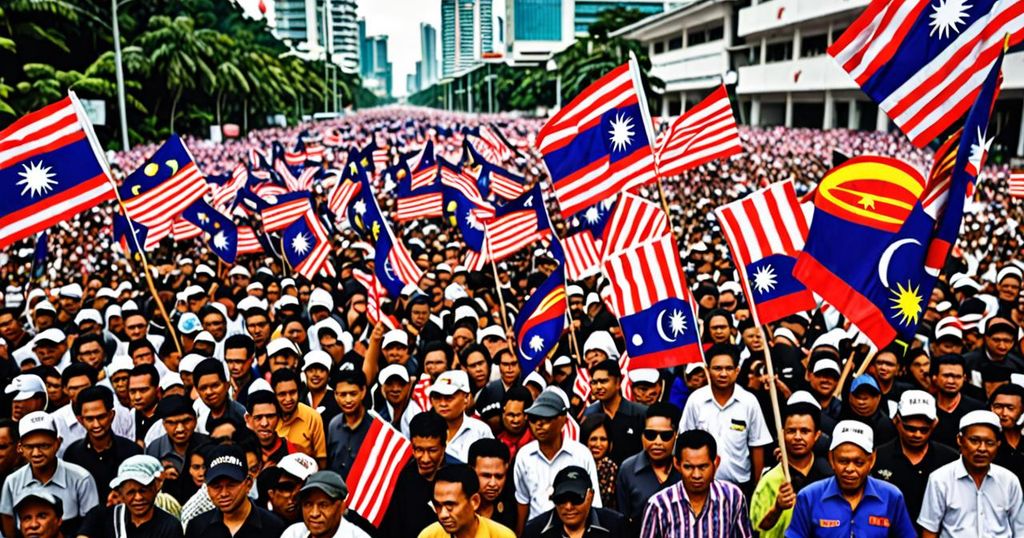The recent surge in populism in Malaysia has sparked a heated debate and stirred up social discord. A particularly contentious incident involving Akmal Saleh, leader of UMNO’s youth wing, and a controversial sock controversy has brought attention to the potential risks and rewards of the revivalist populist movement in Malaysia.
Populist politics often emerge as a response to perceived threats to national identity, culture, or the socioeconomic status quo. Malaysia, with its economic disparities, ethnic divisions, and religious sensitivities, provides fertile ground for such populist movements. Akmal Saleh’s calls to boycott a convenience store chain for selling socks adorned with the word “Allah” and the subsequent violent attacks against some outlets highlight the potency of identity politics, particularly among the Malay-Muslim community.
The incident surrounding the controversial socks serves as a prime example of how populism operates by exploiting emotions and framing debates in stark, simplistic terms. This type of politics often represents complex issues as ‘us-versus-them’ narratives, which leaves little room for nuance or understanding.
Unfortunately, the absence of leadership and silence from the government has only exacerbated the narrative that the non-Malays are out of touch with the Malay majority. Akmal’s strategic use of populist tactics to incite religious and racial tensions reflects a concerning trend in Malaysian politics.
In light of rising populism, there is an urgent need for Malaysian leadership that prioritizes social cohesion, inclusivity, and fosters inter-religious and ethnic empathy. The upcoming general election in 2027 will provide an opportunity for the people to voice their stance on the revivalist populist movement in Malaysia.
Ultimately, the rise of populism presents both risks and rewards for Malaysia, and it is crucial for the government and the people to navigate this complex political landscape with sensitivity and understanding. As the nation moves towards the upcoming general election, it becomes increasingly important for Malaysians to engage in discussions that promote unity and inclusivity, rather than division and discord.
In conclusion, the influence of the rising populist movement in Malaysia poses significant challenges for the country’s political and social fabric. By addressing the grievances of different communities and fostering inter-religious and ethnic understanding, Malaysia can navigate the complexities of populism and work towards a more unified and cohesive society.

Leave a Reply